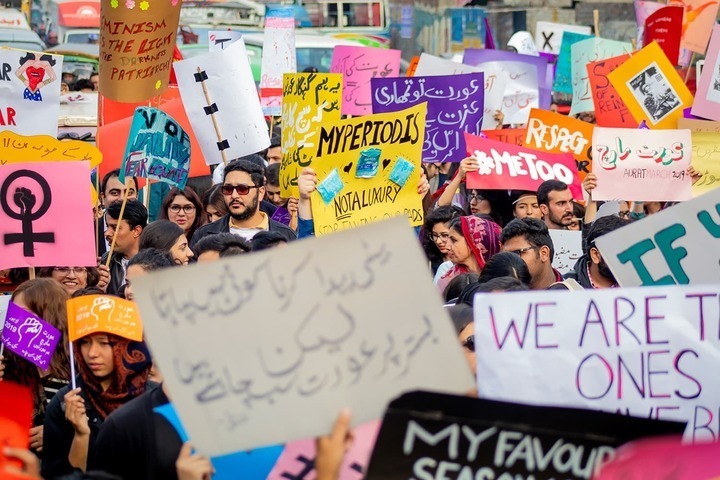
In the past few weeks, Aurat March has been taking out the time to address some of the most common myths and misconceptions brought up consistently when the march is mentioned on a public platform. As 8th March comes closer, most of the public dialogue revolving around the movement involves words like “behayai“, “yahoodi saazish” or even “is this the Islamic Republic of Pakistan?”
In a video posted on Instagram, the organization picked apart some of the most common accusations levelled against the movement, and presented the actual truth to its audience:
- Aurat March is promoting vulgarity
First of all, what defines “decency”? Also, where are the proof of the claims being spoken out publicly that are saying that the march is promoting vulgarity? The organization reminded its audience that the concept of decency varies among different people, thus it has no concrete definition in the law. Also when these people are demanded to present their proof for their claims, they fail to do so and thus these petitions are dismissed from court.
2. About the “mera jism meri marzi” slogan
Why is it considered so immoral for women to publicly talk about the violence inflicted upon their bodies? The organization has used their social media platforms to call attention to numerous issues that are consistently ignored by the media regarding abuse on women and children. Child marriage for example, is a growing issue and statistics presented by the march show that in Pakistan, more than 2 million girls are married before they turn 18 years old.
Another issue the march has addressed on their platform is the problem of inadequate menstural health and hygiene guidance offered to women. An Instagram post was dedicated to covering this topic and which presented statistics that show more than 70 % of women in Pakistan do not have access to sanitation facilities or hygienic products, because of which they are likely to suffer from UTIs or pelvic inflammatory diseases.
3. Aurat March is “elitist”
Is the movement only centered around upper-class women? The march counters this proof by presenting their manifesto on social media where they have called attention to class and racial inequalities existing within Pakistan. Transgender Rights is one of the clauses on their 2021 Manifesto, and their demand is to ensure that discrimination against trans communities ends and that they receive proper healthcare facilities.
by Mahnoor Jalal










